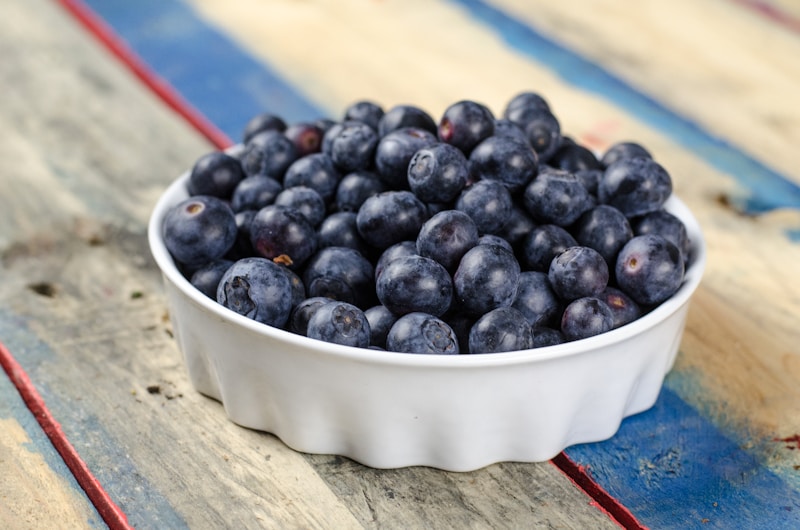12 Questions
What are macronutrients and give examples of each?
Macronutrients are essential nutrients required in relatively large amounts. Examples include carbohydrates (simple and complex), lipids, and proteins.
Explain the role of micronutrients in organisms.
Micronutrients are essential nutrients required in small amounts. They include vitamins and minerals that serve as coenzymes, antioxidants, and regulators of fluid balance, enzyme activity, and bone structure.
What is the process of ingestion in obtaining nutrients?
Ingestion is the process by which food enters the body, allowing organisms to obtain nutrients from their environment.
Describe mechanical digestion and its significance in nutrient absorption.
Mechanical digestion involves the physical breakdown of food through processes like chewing, grinding, and mixing. It is crucial for breaking down food into smaller particles for better absorption.
How do carbohydrates function as nutrients in organisms?
Carbohydrates serve as an energy source and structural component in organisms. They can be in the form of simple sugars (glucose, fructose) or complex starches and fibers.
What are lipids and what roles do they play in organisms?
Lipids are essential nutrients that serve as an energy source, insulation, and structural component. They include fats like triglycerides and phospholipids.
Explain the difference between catabolism and anabolism in nutrient metabolism.
Catabolism involves the breakdown of complex molecules into simpler ones, releasing energy. Anabolism involves the synthesis of complex molecules from simpler ones, using energy.
How does the circulatory system contribute to nutrient transport?
Blood circulation carries nutrients throughout the body by pumping blood through arteries, capillaries, and veins.
Explain the role of digestive enzymes in nutrient absorption.
Digestive enzymes break down food molecules, allowing for better absorption of nutrients.
How do hormones regulate nutrient absorption and storage?
Hormones like insulin regulate nutrient absorption and storage by promoting glucose uptake by cells.
What role does excretion play in nutrient regulation?
Excretion helps organisms get rid of excess nutrients and waste products.
Why is understanding the interconnectedness of nutrition with other life processes important?
Understanding this connection is essential for maintaining optimal health and well-being.
Study Notes
Life Processes: Unraveling the Importance of Nutrition
Life is a dynamic, complex dance between organisms and their environments. At the heart of this dance are the life processes that keep living organisms thriving. One of the most fundamental life processes is nutrition, the means by which organisms obtain and utilize the essential components they need to survive and grow.
Nutrients
Organisms require a variety of nutrients to meet their metabolic needs. Nutrients can be broadly classified as either macronutrients or micronutrients.
-
Macronutrients are essential nutrients required in relatively large amounts, including:
- Carbohydrates: Energy source, structural component
- Simple: Sugars like glucose, fructose
- Complex: Starches and fibers
- Lipids: Energy source, insulation, and structural component
- Fats: Triglycerides, phospholipids
- Proteins: Structural component, enzymes, hormones, antibodies
- Carbohydrates: Energy source, structural component
-
Micronutrients are essential nutrients required in small amounts, including:
- Vitamins: Coenzymes, antioxidants
- Minerals: Regulate fluid balance, enzyme activity, and bone structure
Nutrient intake and absorption
Organisms obtain nutrients from their environment primarily through ingestion. Ingestion is the process by which food enters the body. Once ingested, nutrients are broken down and absorbed in the digestive system.
- Mechanical digestion involves the physical breakdown of food through processes like chewing, grinding, and mixing.
- Chemical digestion breaks down food particles into smaller molecules that can be absorbed by the body. Enzymes produced by the body or derived from food are responsible for chemical digestion.
- Absorption is the process by which nutrients are taken up into the bloodstream, where they can be transported to cells throughout the body.
Energy metabolism
Nutrients provide energy for organisms through metabolic processes. These processes convert nutrients into energy that can be stored or used immediately.
- Catabolism involves the breakdown of complex molecules into simpler ones, releasing energy.
- Anabolism involves the synthesis of complex molecules from simpler ones, using energy.
Nutrient transport
Nutrients must be transported to cells throughout the body to be used as energy or for structural components. Transportation occurs through the circulatory system (blood and blood vessels) and cellular membranes.
- Blood circulation carries nutrients throughout the body. The heart pumps blood through arteries, capillaries, and veins.
- Cell membranes regulate the movement of nutrients between cells and their environment. This occurs through passive transport, active transport, and facilitated transport.
Regulation of nutrient availability
Organisms have developed various mechanisms to regulate the availability of nutrients.
- Dietary choice: Organisms select their food based on nutrient content.
- Digestive enzymes: Enzymes break down food molecules, allowing for better absorption of nutrients.
- Hormonal regulation: Hormones regulate nutrient absorption and storage. For example, insulin is a hormone that helps regulate blood glucose levels by promoting glucose uptake by cells.
- Excretion: Organisms get rid of excess nutrients and waste products through excretion.
Conclusion
Nutrition is a vital life process that allows organisms to obtain and utilize the nutrients they need to survive and thrive. Understanding the importance of nutrition and its interconnectedness with other life processes is essential for maintaining optimal health and well-being. By recognizing the role of nutrients in meeting an organism's needs, we can appreciate the intricate dance between organisms and their environments that sustains life.
This quiz explores the fundamental role of nutrition in sustaining life processes of organisms. Topics covered include nutrient classification, intake and absorption, energy metabolism, nutrient transport, and regulation of nutrient availability.
Make Your Own Quizzes and Flashcards
Convert your notes into interactive study material.




